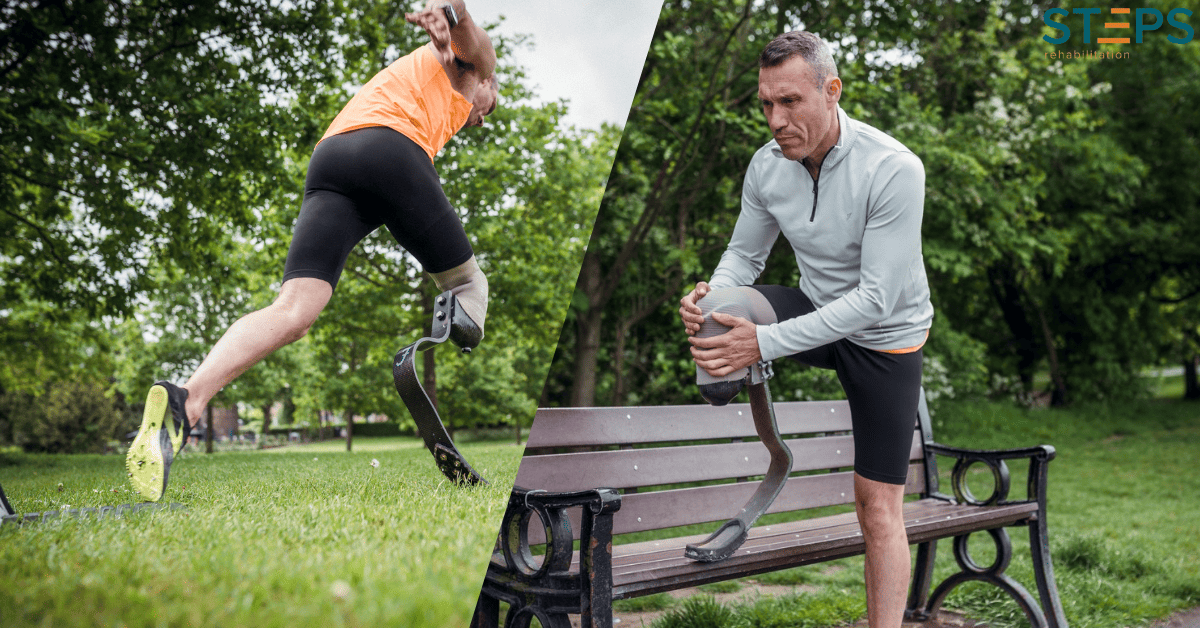Whatever the circumstances of a person becoming an amputee, all are united by a common goal: to return, as near as possible, to pre-injury activity and independence levels. Experience has shown us that because each client’s needs are unique, for rehabilitation to be as effective as possible, their rehabilitation programme must be unique too.
The needs of an amputee are complex and wide ranging. From wound and pain management, to prosthetic rehabilitation and psychological adjustment – every aspect the rehabilitation needs of an individual must be carefully assessed and managed by medical and therapy experts working across a range of specialisms.
This multi-disciplinary team (MDT) approach is seen to have better results than the traditional rehabilitation model. The traditional model sees amputees attending a range of outpatient appointments with a variety of professionals from different organisations, making it almost impossible for there to be collaborative approach to rehabilitation.
Invariably, a particular client need can be easily overlooked which hampers progress in other aspects of the rehabilitation programme. For example, a lack of psychological support can hinder prosthetic outcomes. This lack of collaboration between experts means clients can become despondent and disengaged with the rehabilitation process, sometimes taking months, or even years to achieve significant progress.
The new rehabilitation model offered by STEPS Rehabilitation in partnership with Blatchford involves a range of professionals collaborating to tailor intensive inpatient rehabilitation programmes to each individual client. This MDT approach ensures that the wider needs of clients are met, including pain management and psychology, enabling improved acceptance and outcomes with prosthetics.
This is all made possible because the treatment is delivered under one-roof in a purpose-built rehabilitation centre. By working under one roof, all the medical professionals and therapists can collaborate more easily to deliver the very best rehabilitation programme to amputees. In turn, clients are much better engaged in the whole process. Plus, being in the company of other amputees means clients gain invaluable peer support which boosts morale and promotes a ‘can-do’ attitude.
This modern approach to amputee rehabilitation not only improves outcomes for clients but also does so in a more timely and cost effective manner than traditional methods.
For more information, contact STEPS on 0114 258 7769 or email us hello@stepsrehabilitation.co.uk.
